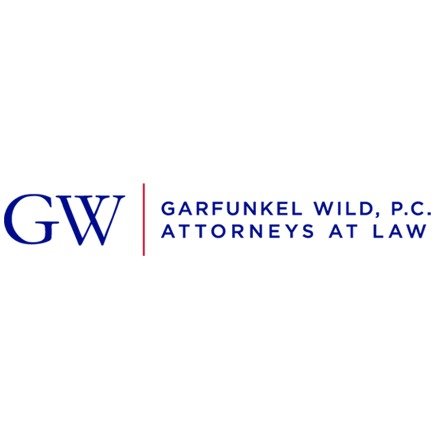Best Government Relations & Lobbying Lawyers in Great Neck
Share your needs with us, get contacted by law firms.
Free. Takes 2 min.
List of the best lawyers in Great Neck, United States
About Government Relations & Lobbying Law in Great Neck, United States
Government Relations & Lobbying law in Great Neck, United States, focuses on the interaction between entities (such as corporations, associations, and interest groups) and governmental bodies. This area of law helps facilitate communication and policy influence efforts between public and private sectors. Lobbying, a core component, involves advocating for certain legislation, regulation, or government action. It is vital in shaping policy and ensuring that governmental decisions reflect diverse interests and expertise.
Why You May Need a Lawyer
Legal assistance may be essential in several scenarios regarding Government Relations & Lobbying. These include:
- Navigating complex federal, state, or local lobbying laws to ensure compliance.
- Registering as a lobbyist and understanding disclosure requirements.
- Crafting strategic communications and advocacy plans that adhere to legal guidelines.
- Addressing ethical concerns and managing conflict of interest issues.
- Handling inquiries or investigations by governmental ethics commissions or agencies.
- Engaging in litigation related to lobbying activities.
Local Laws Overview
In Great Neck, United States, government relations and lobbying activity are influenced by several local and state regulations. Key aspects include:
- Registration: Lobbyists must register with relevant local or state authorities. Certain thresholds define who must register, based on activities and expenditure.
- Disclosure: Regular financial and activity reports are required to maintain transparency and accountability, detailing lobbying expenditures and issues lobbied.
- Ethical Conduct: Strict ethical guidelines govern interactions with public officials to ensure integrity in the lobbying process.
- Contribution Limits: Laws impose limits on political contributions from lobbyists to prevent undue influence on public officials.
- Revolving Door Policies: Restrictions exist on former public officials engaging in lobbying activities immediately after leaving government service, to prevent conflicts of interest.
Frequently Asked Questions
What is lobbying?
Lobbying involves attempting to influence governmental decisions, usually by professionals on behalf of organizations, to promote specific policy objectives.
Who is required to register as a lobbyist?
Individuals or entities that engage in lobbying activities and meet specific expenditure thresholds are typically required to register as lobbyists with the appropriate local or state authorities.
What are lobbying disclosure requirements?
Lobbyists must file regular reports detailing their lobbying activities and expenditures to promote transparency and accountability.
What ethical considerations must lobbyists keep in mind?
Lobbyists must adhere to ethical guidelines that prevent conflicts of interest and uphold integrity, such as avoiding bribery and inappropriate gifts to public officials.
How can lobbying efforts impact policy-making?
Lobbying can provide critical information and perspectives to policymakers, helping shape legislation and regulations that align with varied interests.
What are the penalties for non-compliance with lobbying laws?
Penalties can range from fines to suspension of lobbying rights, depending on the severity of the violation.
What is a "revolving door" policy?
This policy restricts former government officials from becoming lobbyists for a certain period, to mitigate undue influence based on prior public service roles.
Are there limits to what a lobbyist can donate to political campaigns?
Yes, there are contribution limits in place to prevent disproportionate influence on candidates and elected officials by lobbyists.
Can non-profit organizations engage in lobbying?
Yes, non-profits can lobby, but they must adhere to specific regulations concerning the extent and manner of their lobbying activities.
Do lobbyists have unrestricted access to public officials?
No, lobbyists do not have unrestricted access; their interactions are subject to regulations that ensure fairness and ethics in their engagement.
Additional Resources
For further information and assistance in Government Relations & Lobbying, the following resources may be helpful:
- New York State Joint Commission on Public Ethics (JCOPE)
- Great Neck Chamber of Commerce
- National Institute for Lobbying & Ethics (NILE)
- American Bar Association (ABA) Section of Administrative Law and Regulatory Practice
Next Steps
If you need legal assistance in Government Relations & Lobbying, consider the following steps:
- Identify your specific need for legal guidance and outline the scope of your lobbying activities.
- Research and consult with a qualified attorney specializing in government relations and lobbying law.
- Gather all pertinent documentation related to your lobbying activities for review.
- Discuss compliance strategies and legal obligations with your attorney to ensure full adherence to relevant laws.
Engaging knowledgeable legal counsel can help you navigate the complexities of government relations and lobbying law, ensuring your efforts are both effective and compliant.
Lawzana helps you find the best lawyers and law firms in Great Neck through a curated and pre-screened list of qualified legal professionals. Our platform offers rankings and detailed profiles of attorneys and law firms, allowing you to compare based on practice areas, including Government Relations & Lobbying, experience, and client feedback.
Each profile includes a description of the firm's areas of practice, client reviews, team members and partners, year of establishment, spoken languages, office locations, contact information, social media presence, and any published articles or resources. Most firms on our platform speak English and are experienced in both local and international legal matters.
Get a quote from top-rated law firms in Great Neck, United States — quickly, securely, and without unnecessary hassle.
Disclaimer:
The information provided on this page is for general informational purposes only and does not constitute legal advice. While we strive to ensure the accuracy and relevance of the content, legal information may change over time, and interpretations of the law can vary. You should always consult with a qualified legal professional for advice specific to your situation.
We disclaim all liability for actions taken or not taken based on the content of this page. If you believe any information is incorrect or outdated, please contact us, and we will review and update it where appropriate.








